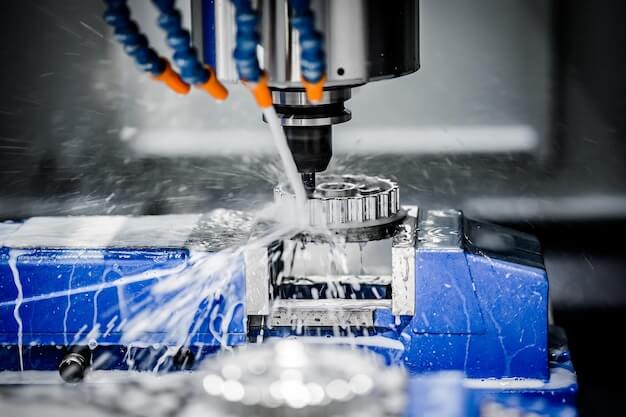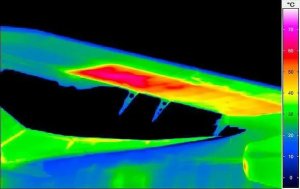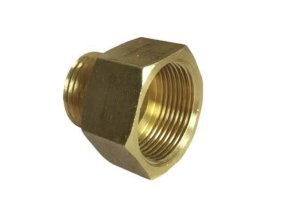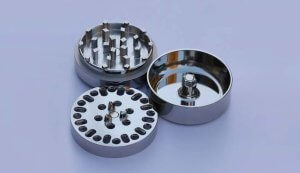Introduction: Titanium Grade 5 vs. Grade 23 in CNC Machining
In the realm of Computer Numerical Control (CNC) machining, the use of titanium-based materials is quite prevalent due to their excellent strength-to-weight ratio and corrosion resistance. Primarily, two types of titanium are used – Grade 5(Ti-6Al-4V) and Grade 23 (Ti-6Al-4V ELI). While Grade 5 is known for its high strength and toughness, Grade 23 offers superior ductility and fracture resistance while also maintaining good mechanical properties. The purpose of this article is to delve into a comparative analysis of these two prevailing grades of titanium with reference to their effectiveness and overall efficiency in CNC machining.
Understanding CNC Machining
CNC machining, short for Computer Numerical Control machining, is a process used in the manufacturing sector that involves the use of computers to control machine tools. Picture an artist with sculpting tools carving out of a block of material— only in this case, the artist is replaced by machines overseen by a computer system.
Titanium plays a paramount role in this process. Being light-weight, strong and resistant to corrosion—it is often the choice material to be cut or shaped using CNC Machining. Think of Titanium as clay in hands of a skilled potter, malleable yet capable of forming durable products. Depending on its grade, it offers various degrees of feasibility to work with. For example, comparing titanium grades 5 and 23 in CNC machining can highlight differences in efficiency. Grade 5 has excellent mechanical properties and high thermal stability while Grade 23 offers superior biocompatibility and strength-to-weight ratio. This makes each more suitable for particular applications over the other.
- The whole process begins with a digital design of the desired product—which we will call a ‘3D model’
- This 3D model serves as a blueprint for the CNC Machine to follow
- The CNC Machine then carves out this design very precisely from the chosen piece of titanium
- You now have your product carved accurately out of titanium, ready for further finishing if needed
To put it simply, you give instructions to the computer about what to make (the 3D model), tell the machine which material to use (in our case, titanium), and let the magic happen!
Features of Titanium Grade 5 in CNC Machining
Titanium Grade 5, also known as Ti-6Al-4V, is a popular titanium alloy with excellent strength, corrosion resistance, and biocompatibility. It is widely used in aerospace, medical, and marine applications due to its high performance and versatility in CNC machining.
Features of Titanium Grade 23 in CNC Machining
Titanium Grade 23, also known as Ti-6Al-4V ELI (Extra Low Interstitial), exhibits a number of distinguishing traits that make it an attractive option for use in CNC machining. With its high strength-to-weight ratio and excellent biocompatibility, this alloy is appropriate for demanding applications like aerospace and medical industries.
In the scope of CNC Machining process, specific qualities of the Grade 23 variant stand out:
- Ductility: The increased ductility offered by grade 23 over other titanium alloys allows complex shapes to be machined more readily, reducing the risk of component failure during processing.
- Corrosion resistance: It’s exceptional resistance against corrosion augments its lifespan even in harsh environments, thereby cost-effective in long run.
- Low modulus of elasticity: Significantly lower than steel’s, which enables components made from this material to flex under load without deforming permanently which proves critical in biomedical implants.
Hence, despite being more expensive than its counterparts, the unique features of Titanium Grade 23 make it highly efficient for certain CNC machining projects.
Comparative Analysis: Titanium Grade 5 vs. Grade 23 in CNC Machining
In the sphere of CNC machining, both Titanium Grade 5 and Titanium Grade 23 are acclaimed for their distinct strengths. While Grade 5 is regarded for its strong mechanical properties such as high tensile strength and amazing thermal resistance, making it suitable for heavy-duty applications, Grade 23 excels due to its superior biocompatibility that’s ideal for medical prosthetics and dental implants.
- Titanium Grade 5: Though incredibly robust, its limitation lies in cost-effectiveness. Given its enhanced features, it tends to be more expensive than other grades, putting financial constraints on large-scale productions.
- Titanium Grade 23: Despite being biocompatible, this grade lacks somewhat in terms of overall strength and durability compared to Grade 5. Therefore, it might not be the best fit for extremely high-stress environments.
To illustrate, a military-grade component demanding high stress-resilience would benefit most from Titanium Grade 5, albeit at greater costs. Conversely, an application with lighter load requirements within the healthcare sector would find Grade 23 perfectly efficient and cost-effective.
Conclusion: Which is More Efficient?
In assessing the efficiency of Titanium Grade 5 and Grade 23 in CNC machining, one must consider the unique advantages of each grade. Titanium Grade 5 is exceptionally strong, making it optimal for high load applications and providing overall robustness in operations. In contrast, Titanium Grade 23, with superior biocompatibility, excels in medical equipment manufacturing.
From an efficiency standpoint, both grades have their prominent areas; therefore, the choice heavily relies on the application context, without repeating the specifics from previous sections. For instance:
- Titanium Grade 5 would be more efficient for heavy-duty components because of its significant strength.
- Titanium Grade 23 finds its efficiency peak in contexts requiring high biocompatibility due to its refined chemical composition.
Hence, when it comes to efficiency in CNC machining, there’s no ‘one-size-fits-all’ titanium grade solution. Instead, the selection should align with the component requirements, thus ensuring maximum operational efficiency.
Other Articles You Might Enjoy
- Efficient CNC Machining of Lightweight Metal and Chrome Removal( cnc machining services china Atwood)
Computer Numerical Control (CNC) machining is a modern manufacturing process used in various industries, frequently dealing with lightweight metals or needing to remove chrome from metal surfaces. This article will…
- Custom CNC Machining Solutions with Titanium for High Precision
Introduction to CNC Machining and Importance of Precision with Titanium CNC, Computer Numerical Control, machining is a sophisticated manufacturing process utilizing computers to control complex tools such as grinders, mills,…
- Using CNC Machining to Fabricate Lightweight Metal and Remove Chrome From Metal( cnc machining services china Dana)
CNC (Computer Numerically Controlled) machining is an essential process in the manufacturing domain. With its precision, adaptability, and extensive applications, many industries rely on it for fabricating highly complex parts…









